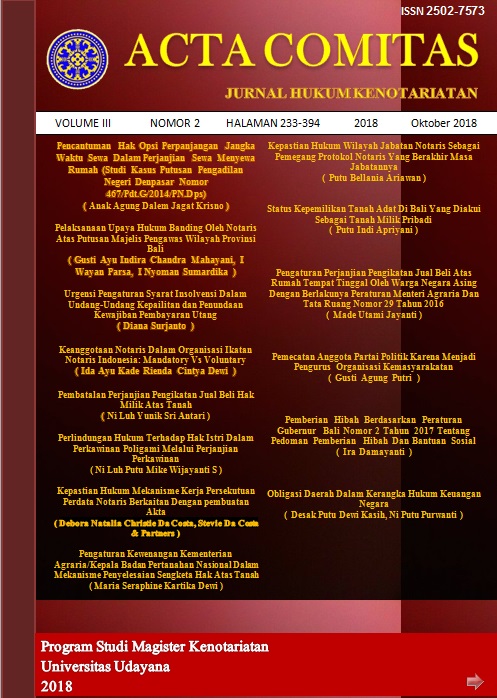Perlindungan Hukum Terhadap Hak Istri Dalam Perkawinan Poligami Melalui Perjanjian Perkawinan
Abstract
Marriage is carried out to form a happy and eternal family as a new stage of entering the real social life. Many things can happen in a marriage life. To avoid various problems in the future, the parties anticipate it by making a marriage agreement. Various problems that arise often result from the actions of the couple themselves for example, such as the desire of a husband who wants to have more than one wife or polygamy. With the marriage agreement, it is very helpful for the parties to resolve such problems because there is no agreement that the parties feel that they have been harmed because everything has been stated in the contents of the agreement. The problem is that there is a void of norms in Article 29 of the Marriage Law which regulates marriage agreements that do not explain how the rights of the wife occur in the case of polygamous marriages. This type of research is normative research. The type of approach used by legislation. The source of the legal material is primary legal material and secondary legal material. The legal collection technique is the technique of literature study and legal material analysis techniques, namely evaluation techniques and argumentation techniques. The results of the study indicate that there must be a joint agreement between husband and wife in making marriage agreements and by making a marriage agreement can protect the rights of wives who experience polygamy in their marriages.
Downloads

This work is licensed under a Creative Commons Attribution 4.0 International License.






